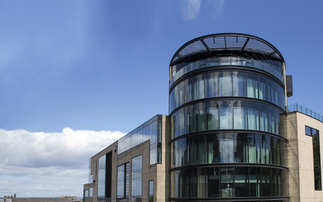Dominic Keen, founder and CEO of Britbots, explains why robotics looks likely to emerge as one of the most active areas of early stage investing in 2017.
The recent launch of the British Robotics Seed Fund, the first SEIS-qualifying investment fund offering investors an opportunity to participate in a mixed basket of innovative businesses that are exploiting the new generation of robotic technologies, will allow promising businesses to finance their early activities and become well positioned to go on to become world-leaders.
There are also now a number of ETF products aimed at providing robotics coverage in the public markets such as ROBO Global and Robocap.
2017 highlights
There are a few specific investment themes to look out for in 2017:
Frugal robotics
Frugal robotics is a trend looking to aggressively reduce the cost of robotics components and platforms so that the amount of upfront capital investment that a user is required to make can be minimised.
London-based start-up Automata Technologies, a maker of low-cost robotic arms, won ABB's global innovation challenge and is heading down this route by charging its customers a sub-£300 monthly fee for an arm, where currently an equivalently-specified alternative would cost more than £25,000.
Addressing labour shortages
Addressing labour shortages that have arisen from of a lack of human appetite for particular types of work is an obvious application-area for robotics.
For example, recently it has become extremely difficult to find agricultural labourers to work on British farms. Without this pool of labour, farmers are having to take a serious look at robotic substitutes.
Dogtooth Technologies, the developer of a strawberry-picking robot, is undergoing trials with a number of major fruit-growers with an automated picker.
Equally, labour shortages for carers-of-the-elderly are well documented with robotic solutions under development.
Fully autonomous operation
While in the popular imagination, robots are seen to be sophisticated and multi-functional, the current realty is very different. Successful robotics start-ups must address a specific problem-type. Building up to fully autonomous operation is essential to managing technology risk.
In December, Just Eat made its first driverless take-away delivery in Greenwich, southeast London, using a small land-based robotic cart developed by Starship Technologies. These carts can controlled by a remotely-based human operator as a pre-cursor to a fully autonomous system.
As the tools and expertise required to build a robotics business proliferate, expect in 2017 to see an explosion of robotic start-ups.
With the substantial tax benefits available under SEIS, there are likely to be attractive investment opportunities available and there's every reason to believe that this new crop of British robots will become important players for the future.














